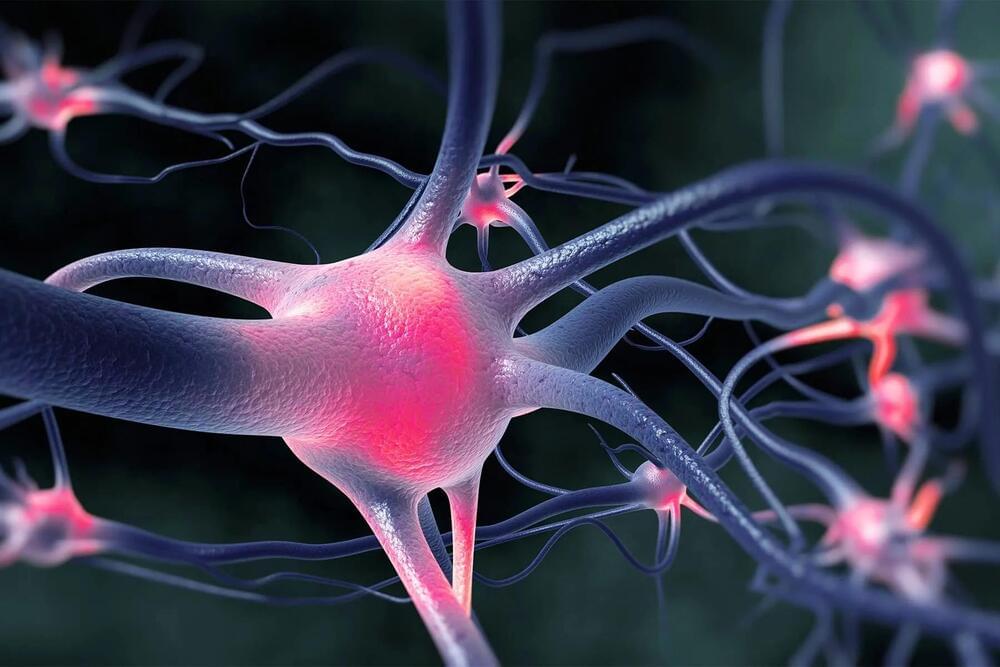Dr. Alok Kanojia (Dr. K) is a psychiatrist, Harvard Medical School instructor, co-founder of HealthyGamerGG, Twitch streamer and a YouTuber. Humans face a predicament that has never been seen in our history, a massive overload in daily stimulation and information. The effect of constant exposure to social media, video games, and porn is not good, but thankfully there are a number of powerful ways to take back control of your attention. Expect to learn the correlation between video game usage and mental health, why our brains are uniquely addicted to looking at screens, whether dopamine fasting is actually legit, the problem with watching porn at a young age, how to combat screen addiction, why some people always feel like they have brain fog, how to find meaning in your life and much more…
Category: neuroscience – Page 527
Beyond Consciousness: How Meditators Voluntarily Enter Void States
Summary: Experienced meditators can voluntarily induce unconscious states, known as cessations, without the use of drugs. This ability, observed in Tibetan Buddhist practice, allows meditators to experience a momentary void of consciousness, followed by enhanced mental clarity.
Conducted across multiple countries, the study utilized EEG spectral analysis to objectively measure brain activity during these cessation events. By correlating the meditator’s first-person experience with neuroimaging data, researchers have gained insights into the profound modulation of consciousness achievable through advanced meditation practices.

Reducing the Cognitive Footprint of Brain Surgery — Michael Sughrue, MD
The Seattle Science Foundation is a not for profit organization dedicated to advancing the quality of patient care through education, research, innovation and technology. As a physician driven organization, we have created a trusted community of nationally recognized experts from the world’s best medical and academic institutions. \
\
SSFTV is the official YouTube channel of the Seattle Science Foundation. Subscribe now to be updated on the latest videos: tinyurl.com/yt8kt8mg.\
\
To join our upcoming meeting for CME credit, visit https://www.ssfcme.org.\
\
Get Social With SSF:\
On Instagram: / seattlesciencefoundation \
On Facebook: / seattlesciencefoundation \
On Twitter: / seattlescifdtn \
On LinkedIn: / 756,824 \
On YouTube: http://www.ssfyoutube.org\
\
All archived recorded lectures are available for informational purposes only and are only eligible for self-claimed Category II credit. They are not intended to serve as, or be the basis of a medical opinion, diagnosis, prognosis or treatment for any particular patient. The information was current at the time of the presentation.
8th FNIP webinar|1st speaker|Dr. G. Perea: Time-Controlling Activation of Astrocyte–Neuron Networks
ABSTRACT: Optogenetics has been widely expanded to enhance or suppress neuronal activity and it has been recently applied to glial cells. Here, we will discuss about a novel approach based on selective expression of melanopsin, a G-protein-coupled photopigment, in astrocytes. We will show the selective expression of melanopsin in astrocytes allows triggering astrocytic Ca2+ signalling, but also studying astrocyte–neuron networks and the behavioral astrocytic contribution.\
Chair and introduction: Dr. Letizia Mariotti (CNR — Institute of Neuroscience)
Mastering Stress: Insights from Dr. Robert Sapolsky
Dr Robert Sapolsky is a Professor at Stanford University, a world-leading researcher, and an author. Stress is an inevitable part of human life. But what is stress actually doing to the human body when it happens for such a prolonged period of time? And what does science say are the best interventions to defeat it? Expect to learn the crucial difference between short term and long term stress, how stress actually impacts the human system, the neurodevelopmental consequences of stress and poverty, how to detrain your dopamine sensitivity, what everyone doesn’t understand about how hormones work, whether believing in free will is a useful world view, why there is a relationship between belief in free will and obesity and much more…
This Is How You Use DOPAMINE As A SUPERPOWER In Your Life
The pursuit of rewards can lead to addiction and insensitivity to pleasure, but managing neurochemistry and focusing on the process can help achieve fulfillment and reduce addiction.
Questions to inspire discussion.
What can the pursuit of rewards lead to?
—The pursuit of rewards can lead to addiction and insensitivity to pleasure.
How To Reset Your Brain’s Dopamine Balance
Anna Lembke is a psychiatrist who is Chief of the Stanford Addiction Medicine Dual Diagnosis Clinic at Stanford University and an author. Dopamine is a key neurotransmitter in our reward pathway. It tells us when to feel pleasure and pain, it can cause depression and anxiety, and it’s being hijacked by the modern world. Phones, video games, porn, food, our world is filled with cheap dopamine, which in turn is making us miserable. Expect to learn how dopamine creates a see-saw balance of pleasure and pain, why cravings to use your phone are driven by dopamine, the truth about dopamine detoxing, how to reset your brain’s dopamine balance, the most successful interventions for changing your relationship to dopamine long term and much more…

